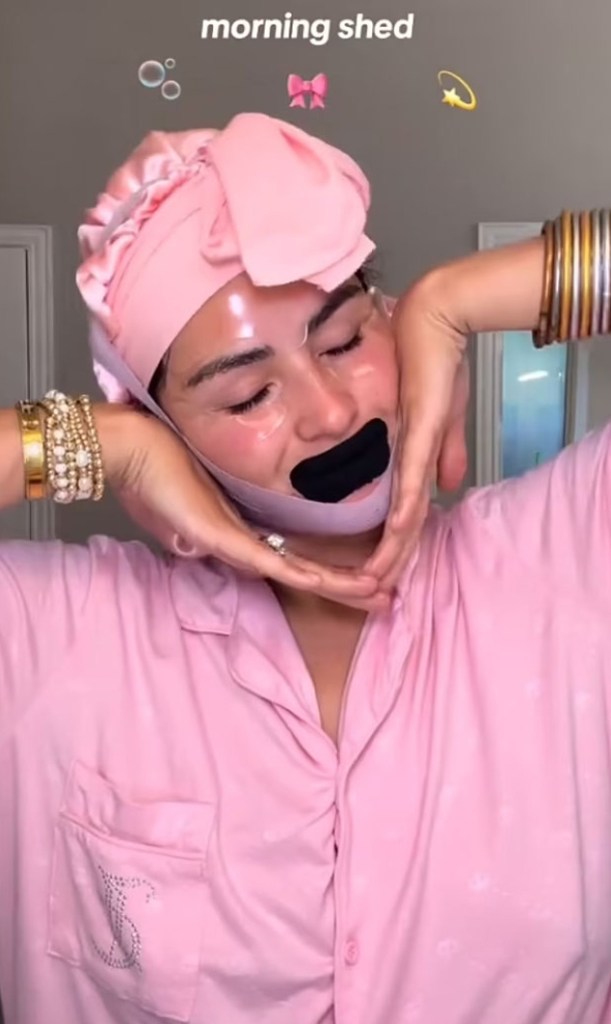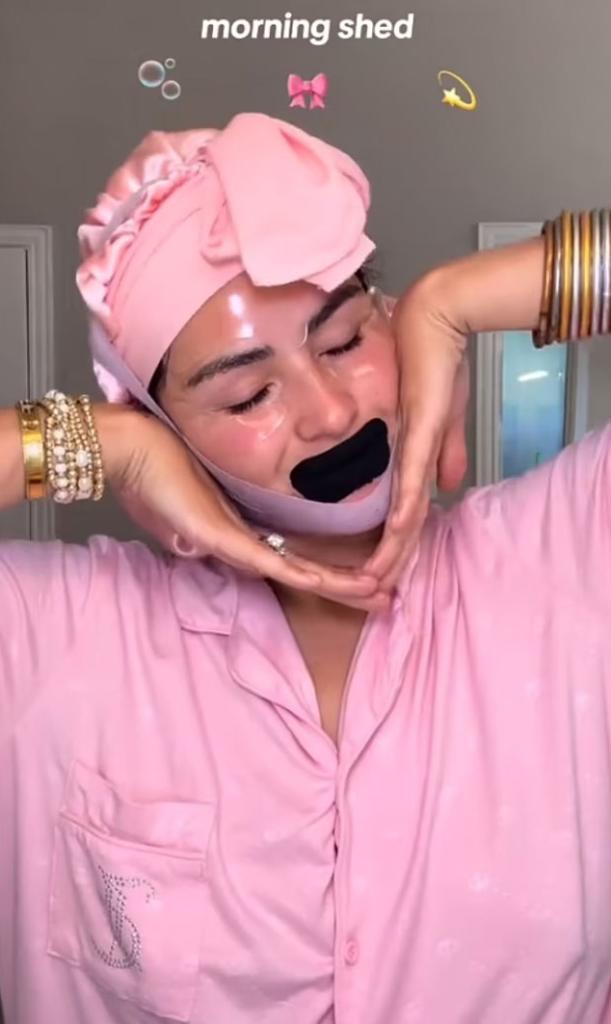In a bid for better shut-eye, desperate youngsters are spearheading a new trend to maximize their sleep.
According to a Gallup poll published earlier this year, only a quarter of Americans are getting the recommended eight hours of rest per night.
Now, Zoomers have invented “sleepmaxxing” — and it’s sweeping TikTok.
The trend sees youngsters try an array of unusual hacks for longer and better-quality sleep, such as chugging “sleepy girl mocktails” or taping their mouths shut to avoid snoring.
But experts say “sleepmaxxing” could actually be a nightmare for overall health.
“In my day to day work, the trend of sleepmaxxing is actually causing most people who try it to sleep worse,” James Wilson, known as “The Sleep Geek” at Mattress Online, told Daily Mail, adding that the fad could in turn cause “orthosomnia,” an obsession with getting the “perfect sleep.”
“Of course, this is not useful, as when we are stressed and anxious we sleep worse.”
Wilson is not a fan of mouth taping, despite users swearing up and down that it makes them feel better rested.
“There is no proof the practice improves sleep, and it masks the main symptoms of a serious sleep disorder called sleep apnea,” he warned.
“Nasal breathing is good for our wellbeing, the best way to do it more at night, is consciously practice doing it during the day.”
Meanwhile, others swear by the “sleepy girl mocktail” — a bedtime beverage of seltzer water, tart cherry juice and magnesium powder that users insist provides the best sleep of their lives.
While experts have lauded the concoction as a great way to get magnesium into the diet and suspect it could help people feel more relaxed, nutritionist Toby King told Daily Mail that people should be wary of how much of the mineral they consume, as high doses of magnesium can have an adverse reaction in the gut and make the muscles too relaxed.
But Wilson added that the drink is “unlikely to help significantly” and is probably a placebo. He isn’t so convinced that the sleepmaxxing methods widespread on TikTok are of any benefit at all to those desperate for more sleep.
“It has become more and more prominent over the past few months due to podcasters and influencers giving a platform to practices and theories that have little or no evidence, and promoting brands that sell the products behind these trends, which they often have undisclosed commercial arrangements with,” he said.
“The best way to sleep better is to understand who you are as a sleeper, work out what it is stopping you sleeping, and look for the best advice and/or products to resolve that specific problem.”














